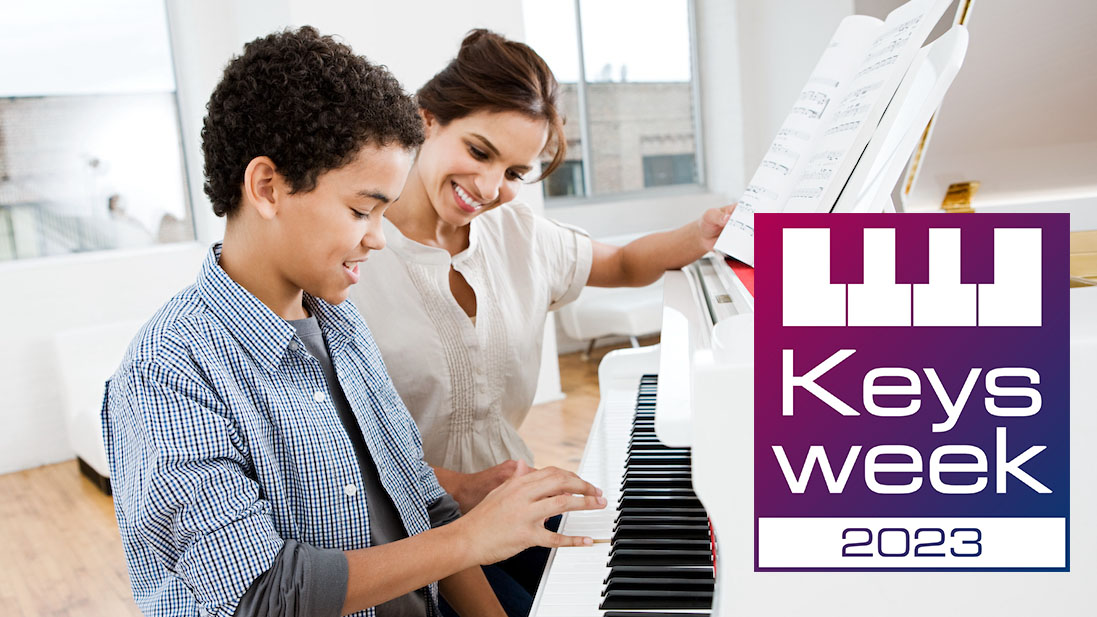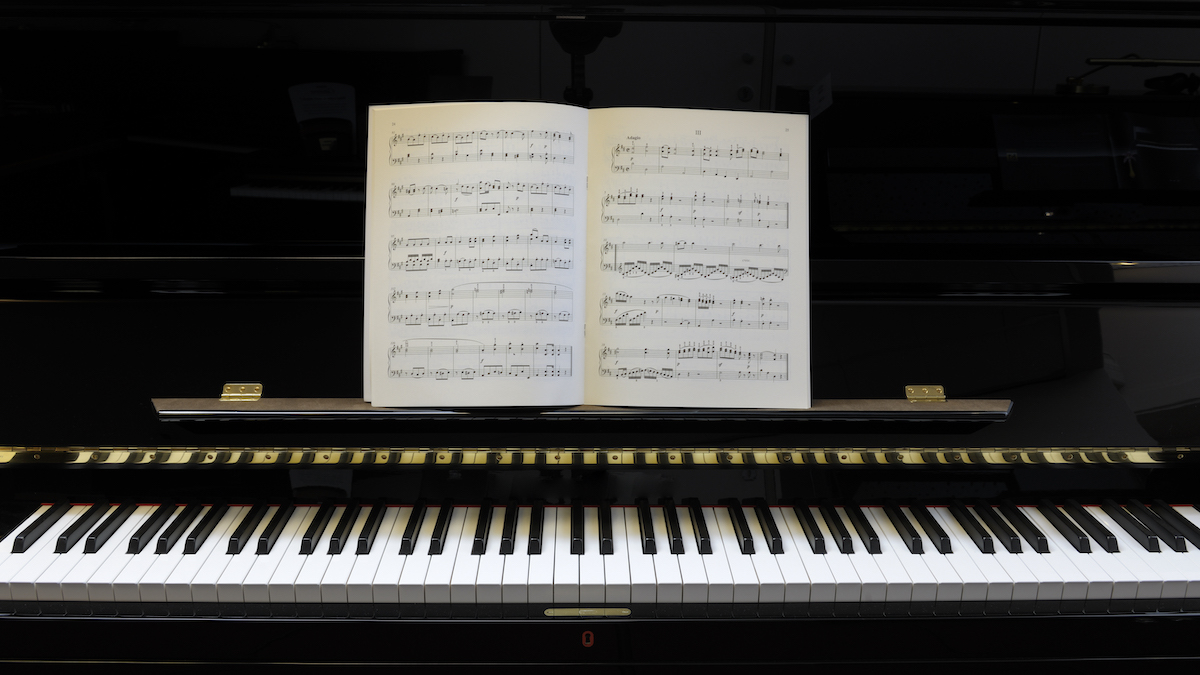The 9 biggest myths about learning the piano
Not sure if the piano is for you? We’re here to dispel the most common misconceptions

There can be any number of reasons why people take up learning a musical instrument. Personal enjoyment, self-expression, relaxation, not to mention several cognitive benefits, are all things that can be attributed to the power of music.
Choosing to learn any instrument is a big decision though, and it’s true that attaining any meaningful level of prowess will require many hours of commitment, focus and practice. The piano in particular can be especially intimidating, this huge, imposing instrument grinning at you with a mouthful of 88 teeth.
So if you’ve ever toyed with the idea of learning the piano but been put off for any reason, fear not - you’re not alone. Many people abandon the idea of learning because they think they’re too old, not talented enough or just not cut out for it in some other way.
But we at MusicRadar are here to dispel some of the more obvious myths and misconceptions that surround learning the piano, allowing you to get past whatever’s preventing you from embarking on what is ultimately an extremely joyful pastime.
Myth #1: You need an acoustic piano
These days, a heavy and cumbersome acoustic piano is not required if you want to take up piano lessons. The current crop of entry-level digital pianos from major manufacturers such as Korg, Yamaha, Roland and Casio are all designed to closely replicate the sound and feel of an acoustic instrument with none of the downsides.
Digital pianos are easy to maintain, don’t go out of tune, are much lighter than acoustic instruments and can be played with headphones so as not to annoy your neighbours. With all this taken into account, we’d be daft not to recommend a digital piano as a starter instrument, whatever your age.
Myth #2: You have to start young
It’s a misconception that, once we reach adulthood, it’s too late to start learning the piano. Obviously, starting young does have certain advantages, but we’re not all child prodigies like Cory Henry or Glenn Gould - in fact, it's never too late to start learning.
Want all the hottest music and gear news, reviews, deals, features and more, direct to your inbox? Sign up here.
I know of at least two very capable pianists who didn’t take up the piano until after the age of forty, and there have been many successful artists and musicians - Fats Waller and Charles Bradley to name but two - who didn’t begin learning until well into adulthood. Studies have also shown that playing a musical instrument is an effective way to improve cognitive function and support emotional well-being, so learning the piano later in life definitely has its benefits.
Myth #3: Learning the piano is really hard and takes a long time
We’d contend that this one is more of a half-truth than a myth. While mastering the piano does take years of dedication and focus, getting to the level where you can play your favourite songs or pieces for your own enjoyment takes nowhere near that length of time.
Of course, how long it takes to attain a certain level of prowess will depend on your flair and innate talent for the instrument, and some will need to work harder than others to get where they want to be. However, if you just want to be good enough to hold down the chords of your favourite songs while you sing along, it’s perfectly possible to get to that level in just a few weeks.
Like anything, practice is key and there are loads of online resources to help you along, especially if you have a particular song in mind.
Myth #4: You need to learn classical music
It’s true that classical music forms the basis of most traditional formal lesson plans and exam board grades, but that’s not the only way to learn. Classical music is important if you’re determined to learn proper technique, and many exercises and starter pieces are classical in nature, but if your ultimate goal is to play pop music, it can be needlessly inhibiting.
I’ve come across classical pianists who are virtuosic at playing music placed in front of them, but can’t improvise anything remotely current-sounding. Yet there are session keyboardists out there who can’t read sheet music and don’t have a single classical piece in their repertoire, yet are highly in demand because of their ability to improvise, play by ear and conjure up brilliant contemporary parts almost immediately.
It all depends on the individual, but having a wide classical repertoire under your belt is by no means a prerequisite to being able to play enjoyably at home, or professionally.
The piano is a versatile instrument that can apply itself to multiple genres such as rock, pop, jazz and blues, so a lot depends on what you like to play while you are learning, and in what direction your natural affinity lies.

Myth #5: You have to learn to read sheet music
Not at all. Although learning to read sheet music is always a useful skill, it certainly is not essential for playing piano, even at professional level. This writer learnt by ear without having more than a single year of lessons.
I would say that, after a twenty-year career as a professional keyboard player, I can play the piano very well in a certain way that lends itself to current, commercial music - and that’s the important thing. My personal playing style is very modern, rock/pop-based rather than classical.
I can manage a few classical pieces, but I cannot sight read. So although this has affected my ability to play piano in certain, more classical styles, I would still class myself as an advanced player in my chosen genre.
Myth #6: You need an expensive keyboard or digital piano from day one
This is definitely not true. Beginner keyboards with decent acoustic piano sounds can be had for around £100/$100, although you may need to spend slightly more for one with a proper, 88-key fully-weighted hammer action keybed that will give you something close to the authentic feel of an acoustic piano.
Myth #7: You need long fingers to be a good piano player
This one is an easy one to dispel. Although it wont do your ivory-tinkling ambitions any harm if your hand span rivals the wingspan of a bald eagle, long, lithe and athletic digits are by no means essential to pianistic success.
Just look at Rick Wakeman, Elton John or Billy Joel, all iconic Rock and Pop pianists, all of whom will be the first to admit to having a fistful of sausage fingers! Having small hands is also no barrier to success - your digital dimensions don’t really matter, it’s down to how well you can make them go where you want them to!

Myth #8: It's essential you take lessons with a teacher in person
Many people imagine that the only way to learn the piano is by arranging expensive, one-on-one lessons in person with a teacher. While this is a superb way to learn, it’s not essential now that we have access to online resources like YouTube and subscription-based lessons services such as Flowkey, Playground Sessions and Pianote.
These have the advantage of being less expensive and easier to schedule, as you can easily fit lessons around your schedule. Of course, with such a wide range of material out there, you need to know where to look to find the best quality content, which luckily we can help with! You can find our roundup of the best online piano lessons.
Myth #9: You need to have innate talent
Like most things, some people will have a natural aptitude for playing a musical instrument, while others will find that it just isn’t for them. As a beginner, you’ll have a place somewhere on that spectrum. If playing the piano is your goal, it goes without saying that the more natural aptitude you have for it, the smoother your learning journey will be.
That said, playing the piano is a skill like any other, which means that it can be developed through consistent, focused practice and a little effort. With enough dedication, anybody who wants to can make significant progress, often more than enough to fulfil your initial expectations. The key is - stick with it!
Dave has been making music with computers since 1988 and his engineering, programming and keyboard-playing has featured on recordings by artists including George Michael, Kylie and Gary Barlow. A music technology writer since 2007, he’s Computer Music’s long-serving songwriting and music theory columnist, iCreate magazine’s resident Logic Pro expert and a regular contributor to MusicRadar and Attack Magazine. He also lectures on synthesis at Leeds Conservatoire of Music and is the author of Avid Pro Tools Basics.
